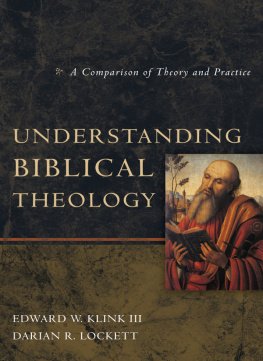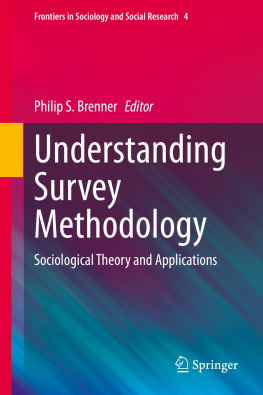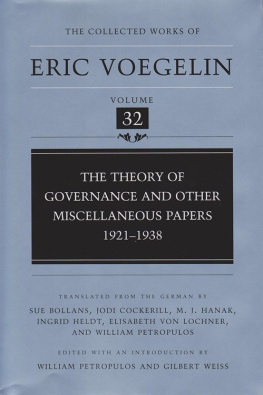First published 2006 by Transaction Publishers
Published 2017 by Routledge
2 Park Square, Milton Park, Abingdon, Oxon OX14 4RN
711 Third Avenue, New York, NY 10017, USA
Routledge is an imprint of the Taylor & Francis Group, an informa business
Copyright 2006 by Taylor & Francis.
All rights reserved. No part of this book may be reprinted or reproduced or utilised in any form or by any electronic, mechanical, or other means, now known or hereafter invented, including photocopying and recording, or in any information storage or retrieval system, without permission in writing from the publishers.
Notice:
Product or corporate names may be trademarks or registered trademarks, and are used only for identification and explanation without intent to infringe.
Library of Congress Catalog Number: 2006044477
Library of Congress Cataloging-in-Publication Data
Shils, Edward, 1910-1995.
A fragment of a sociological autobiography : the history of my pursuit of a few ideas / Edward Shils ; edited by Steven Grosby ; with an introd. by Steven Grosby.
p. cm.
Includes bibliographical references and index.
ISBN 0-7658-0336-4 (alk. paper)
1. Sociology. 2. SociologyPhilosophy. 3. Social values. 4. Civil society. 5. Shils, Edward, 1910-1995. I. Grosby, Steven Elliott, 1951-II. Title.
HM585.S5165 2006
301.092dc22
2006044477
ISBN 13: 978-0-7658-0336-8 (hbk)
Edward Shils wrote A Fragment of a Sociological Autobiography: The History of My Pursuit of a Few Ideas during the years of 1991 and 1992, when he was eighty-one years old. He was in full command of his considerable intellectual abilities, and remained so until only a few months before his death in January 1995. I was in a position to judge firsthand how intellectually powerful he remained during even the last six months of his life; for, in July 1994, I accompanied him to the meeting of the Academic Advisory Board of the Institut fr die Wissenschaften vom Menschen held at the summer residence, Castelgandolfo, of Pope John Paul II. Cancer had spread throughout his body, and the treatments of chemotherapy had physically exhausted him to the point where he could not travel alone, which is why I was with him in Italy and, later, England. Nonetheless, his comments during the discussions at Castelgandolfo were in full accord with the intellectual insight and bravery that were characteristic of him throughout his life. I remember one evening at Castelgandolfo Paul Ricoeur saying to me that, while he did not always agree with Shils views, he had always admired Shils intellectual and personal bravery, and never more so than at that time in Italy.
At the time of the composition of the three manuscripts that comprise this volume, Shils, even at eighty-one, maintained his demanding pace of activities, traveling regularly between his two homesChicago and Cambridge, Englandwith frequent visits to Italy, Austria, and Germany. His capacity for work remained prodigious: writing many important papers; continuing to edit Minerva: A Review of Science, Learning, and Policy; teaching seminars during the Autumn and Spring semesters at The University of Chicago; and organizing the conference The University of the 21st Century as the central event of the centennial celebration of The University of Chicago in 1991.
Many of the papers that Shils wrote during this period, including the previously unpublished two that accompany the Fragment in this volumeSociety, Collective Self-Consciousness and Collective Self-Consciousnesses and Collective Self-Consciousness and Rational Choiceare important theoretical contributions. The same may be said of those other papers written by him during this time on civility and civil society. Among these, especially three merit careful attention: Civility and Civil Society: Good Manners Between Persons and Concern for the Common Good in Public Affairs; Nation, Nationality, Nationalism and Civil Society; and The Virtue of Civility. These latter three papers are to be found in the posthumously published volume, The Virtue of Civility.
More should be said about the place of the manuscripts of this volume in the history of Shils thought. Shils had delivered in 1974 the T.S. Eliot Memorial Lectures at the University of Kent at Canterbury. The revision of those lectures appeared in 1981, when Shils was seventy-one, as Tradition, published by Faber and Faber and The University of Chicago Press. Tradition was the last book-length monograph by Shils to have been published during his life. It had been preceded by the publication of three volumes of his selected papers, published by The University of Chicago: The Intellectuals and the Powers (1972), Center and Periphery (1975), and The Calling of Sociology (1980). However, as I have stressed, from 1981 to 1994, Shils continued his work; he deepened his theoretical understanding and pushed out into new directions. The manuscript Movements of Knowledge, about which more below, represented the new direction of his work. As to those problems that he had worked on previously but now returned to with a deeper understanding, his writings during the late 1980s and early 1990s on civility and civil society are considerably richer than his earlier, important essays on these subjects. The other area that received his renewed attention was the problem of consensus, or as he referred to it during the last fifteen years of his life and in the manuscripts of this volume, collective self-consciousness. The problem of collective self-consciousness brings us to this book.
The largest part of this book, from which it takes its title, is A Fragment of a Sociological Autobiography. As indicated by the title, there is a wealth of autobiographical detail in the Fragment. Here, Shils, the son of Jewish immigrants, describes his boyhood in Philadelphia, where his father worked as a cigar maker; his discovery of the work of Mencken; his undergraduate years at The University of Pennsylvania; the years of 1931-32, when he worked as a social worker first in New York City and then in Chicago; and how, during 1932 and 1933, he became associated with The University of Chicago. The reader will also find Shils fascinating reflections on the numerous individuals whom he knew well and who were significant to the social sciences in the twentieth century, among them Louis Wirth, Frank Knight, Karl Mannheim, Talcott Parsons, R.H. Tawney, Michael Polanyi, Audrey Richards, Friedrich Hayek, and Raymond Aron. We learn of other individuals and their place in Shils life: Howard Becker, Salo Baron, Hebert Bulmer, Robert Hutchins, Nathan Leites, Everett Hughes, Karl Popper, Alexander von Shelting, and many more. There are discussions of Shils appointments at the London School of Economics, Cambridge University, and, of course, the University of Chicago; his time in India; his relation with the Tavistock Institute; the pivotal role he played in the Congress for Cultural Freedom; and the founding of









